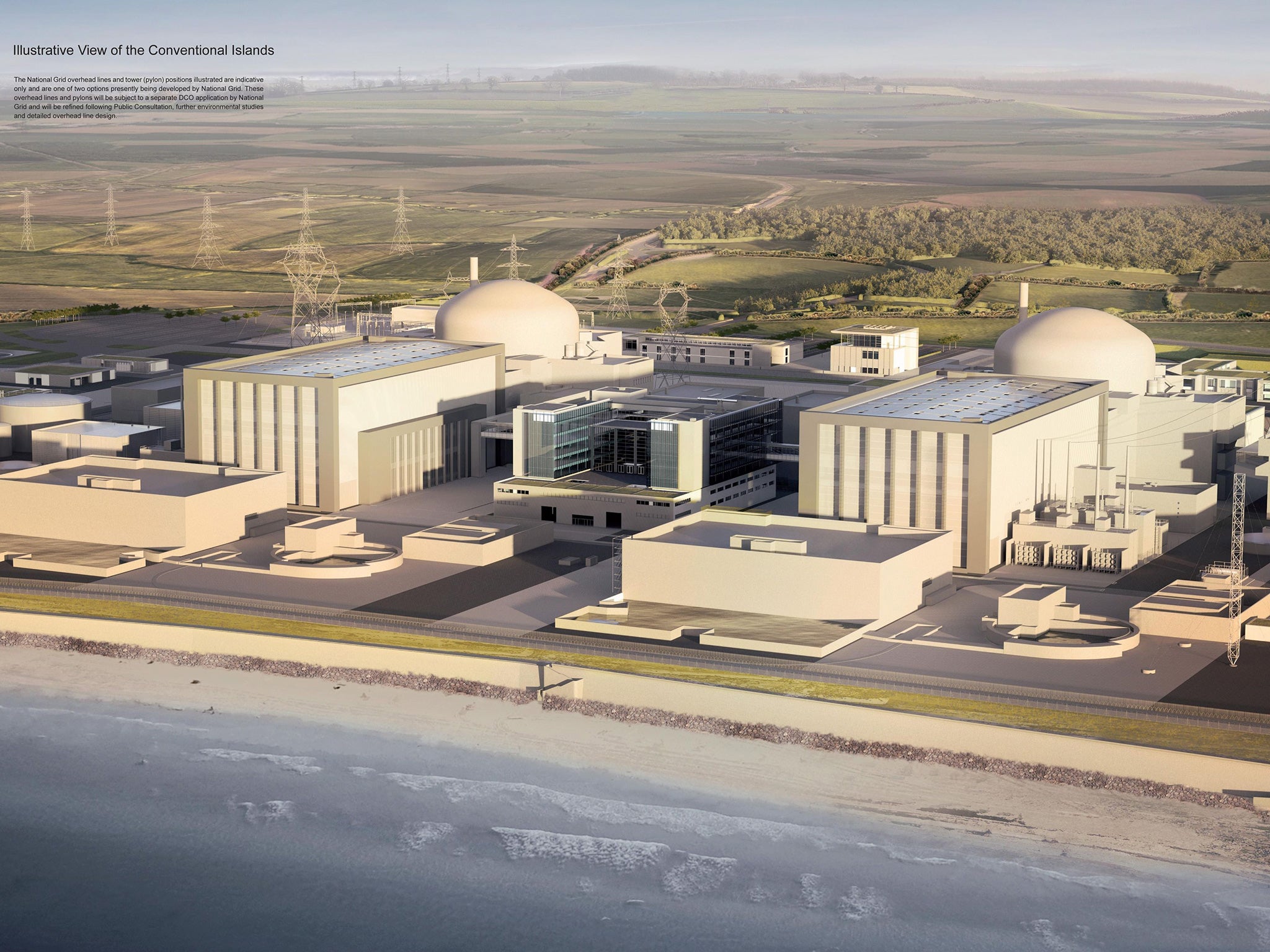The Government's guarantee of the Hinkley power station heralds the start of a nuclear renaissance
This project could be the "sprat that catches the mackerel"

Your support helps us to tell the story
From reproductive rights to climate change to Big Tech, The Independent is on the ground when the story is developing. Whether it's investigating the financials of Elon Musk's pro-Trump PAC or producing our latest documentary, 'The A Word', which shines a light on the American women fighting for reproductive rights, we know how important it is to parse out the facts from the messaging.
At such a critical moment in US history, we need reporters on the ground. Your donation allows us to keep sending journalists to speak to both sides of the story.
The Independent is trusted by Americans across the entire political spectrum. And unlike many other quality news outlets, we choose not to lock Americans out of our reporting and analysis with paywalls. We believe quality journalism should be available to everyone, paid for by those who can afford it.
Your support makes all the difference.Twelve months ago I succeeded Sir Bernard Ingham as Secretary of the Supporters of Nuclear Energy (SONE), a pro-nuclear lobby group which has been advocating the benefits of nuclear power for the past 20 years - to little or no avail. All that has changed. A nuclear renaissance is on the way.
That, for me, is the real import of this week's announcement by George Osborne, the Chancellor of the Exchequer, of a £2bn government guarantee designed to pave the way for a final investment decision to be taken on EDF's £24.5bn Hinkley Point C nuclear power station project.
SONE can best be described as a critical supporter of the project - but a supporter nonetheless. The important thing for me is that the Government has made it clear that Hinkley is not a one-off development but the first in what could be an extensive programme, involving several different reactor types.
Let us be clear. The Government is not lending any money to Hinkley Point's developers. It is simply offering a guarantee to commercial lenders that the UK taxpayer would step in and repay them if the developers went bust, making it easier to raise the necessary finance for the scheme.
This is unlikely, given that EDF is owned by the French state and the two Chinese companies expected to take part in the investment - China General Nuclear Corporation and China National Nuclear Corporation - have close links to China's national and state governments.
Nevertheless, a measure of insurance has been built into the Government's support deal. Hinkley Point's developers will pay an annual fee of 2.95 per cent of the value of the loan - about £59 million - as a form of insurance premium in return for the guarantee. Something similar is likely as the build programme which I now expect proceeds.
If this week's announcement was only about Hinkley Point C and its planned use of EDF's much maligned EPR reactor there would be less enthusiasm for it from SONE's members than there is likely to be at the organisation's annual meeting next month.
There is no getting away from the fact that projects involving the EPR reactor in Finland and France have not gone well, technically or economically, and there has been a storm of media criticism of the UK Government's support for it recently. The best that can be said is that EDF has promised that lessons have been learned and that Hinkley will benefit from them.
It is also apparent now that something of a “sprat to catch a mackerel” manoeuvre has been going on, involving France, the UK and China. By supporting the Hinkley C scheme the UK has helped the French and demonstrated that it values developing closer links with China, too. Specifically, the energy secretary, Amber Rudd, has said that she wants to see Beijing take the lead in developing new nuclear plants in Britain, possibly with joint deals involving EDF.
China is now expected to lead the construction of a Beijing-designed nuclear plant at Bradwell in Essex. The Chinese reactor has been cited by opponents of the EPR reactor as an attractive alternative to it. They will not have expected a succession of such plants to be under consideration, however.
Add those to Hinkley Point C, NuGen's proposed £15 billion Moorside nuclear power plant in West Cumbria and Horizon's proposals for stations to be built at Wylfa and Oldbury and you have the makings of a true nuclear renaissance.
Join our commenting forum
Join thought-provoking conversations, follow other Independent readers and see their replies
Comments